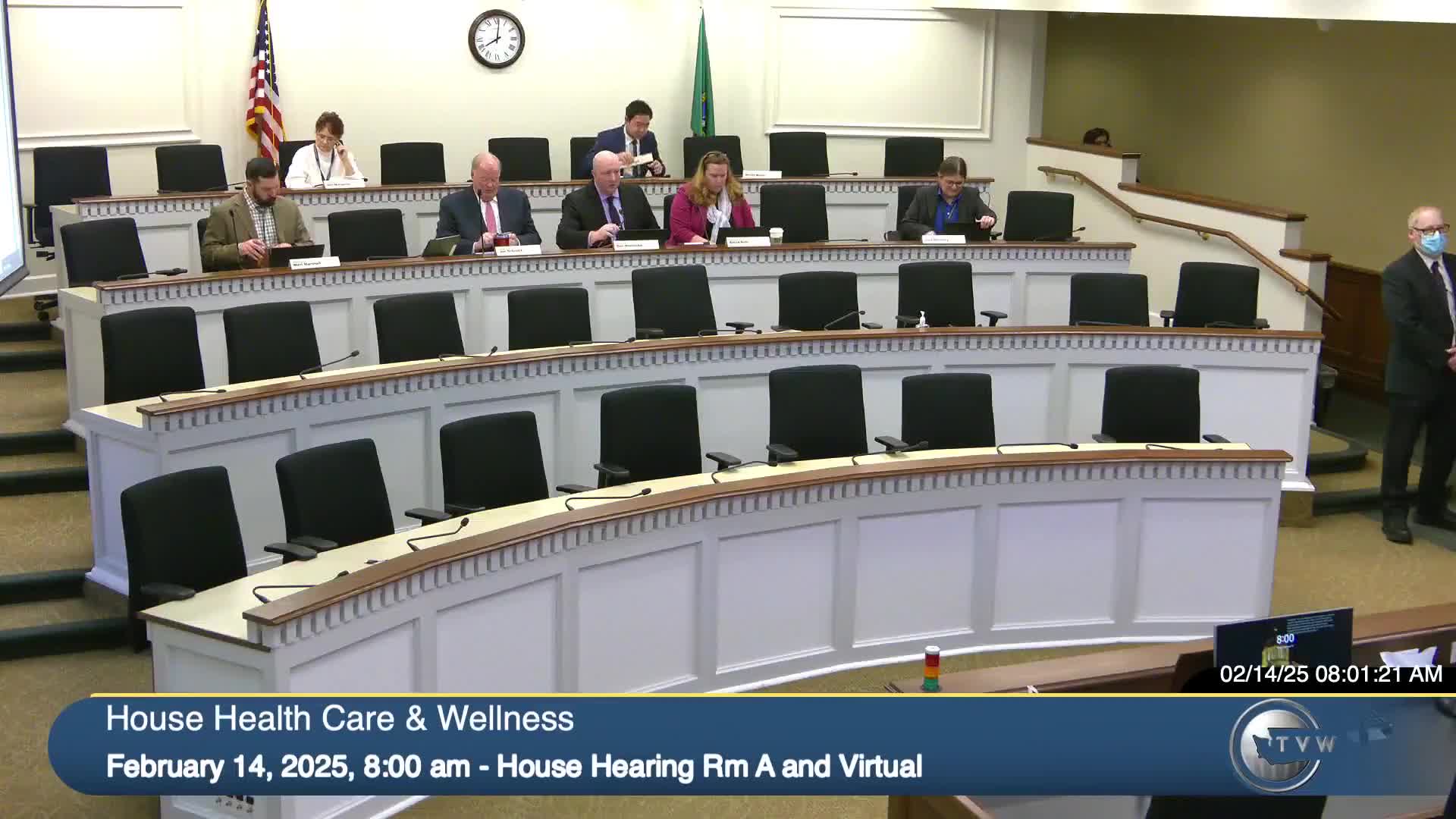Bill would create EMS behavioral-health training, optional advanced endorsement and pilots
Get AI-powered insights, summaries, and transcripts
Subscribe
Summary
House Bill 1809 would require the University of Washington's BH Core to create behavioral-health training for EMS personnel, authorize an optional advanced EMS behavioral-health endorsement and fund pilots to develop billing and coordination practices for co-response teams.
House Bill 1809 would require the University of Washington—behavioral health crisis outreach, response and education center (BH Core) to develop training for emergency medical services personnel who respond to behavioral-health emergencies and authorize optional advanced certification for EMS providers.
Supporters, including the bill—s prime sponsor, Representative Craig Nance, Kitsap County, told the House Health Care & Wellness Committee on Feb. 14 that the measure aims to give firefighters, EMTs and paramedics tools to stabilize and refer people in crisis to nonemergency services when appropriate.
"Neighbors experiencing behavioral health crisis need compassionate care and they need referrals to life saving services," Representative Craig Nance said. "Vast majority of folks don't need to be in emergency rooms."
Under the proposal, the BH Core at the University of Washington would develop a training course that the state Department of Health could recognize as an optional recertification module for certified EMS professionals. The bill would also create an optional EMS endorsement in advanced behavioral-health topics such as overdose response, suicide prevention and crisis de-escalation; the endorsement would be developed by the BH Core and recognized by the Health Care Authority (HCA) for billing purposes under Medicaid if the endorsed personnel are delivering services.
HB 1809 would also direct the Health Care Authority to run pilot projects in four behavioral health administrative services organizations (BH-ASOs). The pilots would be asked to develop best practices for coordinated responses to behavioral-health emergencies, establish billing options for fire, EMS and law enforcement agencies that respond to behavioral-health calls, and assess responder training needs. The pilot period in the bill runs from Jan. 1, 2026, to July 1, 2027, with a required report due July 1, 2027.
Fire and EMS leaders, ambulance associations and community co-responder programs testified in support. Capt. Keith Sharp of South Snohomish County Regional Fire Authority said his office—s community resource paramedic program responds to more than 2,000 behavioral-health calls annually and connects 71% of contacts with treatment when outreach succeeds. "Without dedicated funding, sustaining and expanding this work becomes nearly impossible," Sharp said.
Kim Hendrickson of BH Core described the role of fire-based EMS in behavioral-health responses across the state and said the bill would create a pathway for both basic and advanced training. Amy Barton, chief of Seattle CARE (Community Assistance, Referral and Education), told the committee that standardized behavioral-health training for police, fire, EMTs and community responders would improve person-centered, coordinated responses statewide.
Several speakers emphasized that current EMS training contains little to no behavioral-health-specific curriculum and that on-the-job experience has been the primary way responders learn. EMS and fire leaders also warned that reimbursement is a key implementation challenge: most ambulance providers are paid only when they transport a patient to a hospital, and pilot and endorsement reimbursement would need to be structured so agencies do not suffer financial losses for on-scene or diversion services.
The bill does not itself appropriate funding. Staff testified HCA would develop payment methodologies for Medicaid if it elects to reimburse for endorsed services. Committee members and testifiers discussed the potential for the pilot projects to produce recommended billing procedures and for separate bills to address alternative transport and follow-up care.
The committee held public testimony from a mixture of municipal officials, fire and EMS chiefs, co-responder staff and nonprofit policy groups. Testifiers described local co-response programs (for example, Poulsbo Fire CARES and Seattle CARE) that pair fire or EMS responders with social workers or behavioral-health specialists to deliver treatment on scene and reduce avoidable emergency department visits.
No formal vote was recorded in the public hearing. Committee staff closed testimony on HB 1809 before moving on to other bills on the agenda.
Ending: Committee members signaled interest in refining the bill and in follow-up rulemaking with stakeholders. Proponents asked that work continue on reimbursement models and pilot design before the bill moves further in the process.
